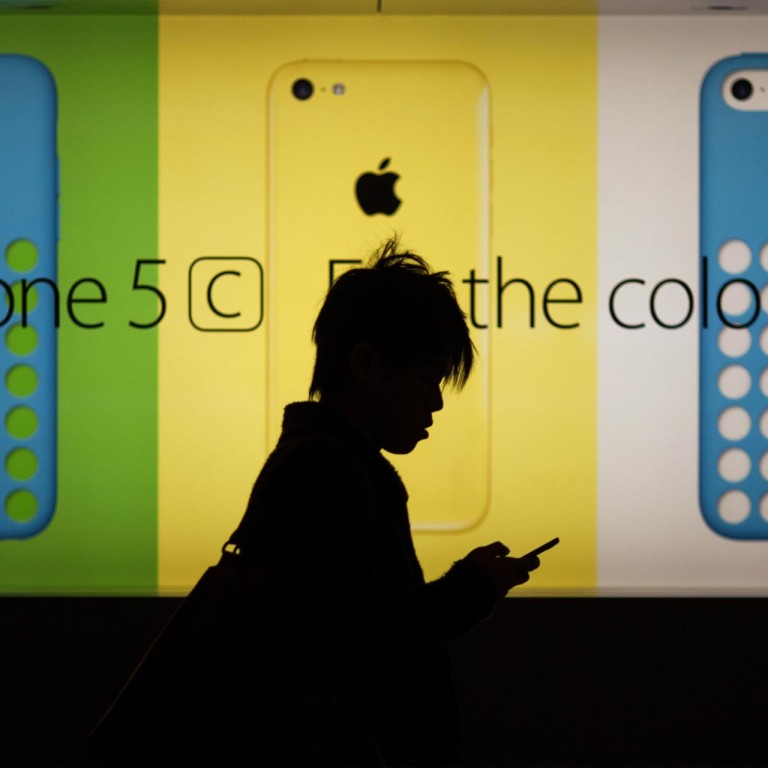
Latest Apple jailbreak seen as commercial opportunity
iOS7 crack mired in controversy after suspect Chinese app store is included in download
Each year, Apple releases a new version of the software running its iconic mobile devices, the iPhone and iPad. And each year, a small but dogged community of hackers sets out to crack it - or, in the words of the hackers, "jailbreak" it.
The liberation imagery long seemed apt. Apple puts strict limits on how its devices can be used, requiring, for example, that all apps be bought through the company's lucrative iTunes store. By comparison, the hackers styled themselves as plucky hobbyists seeking freedom from what they derided as Apple's "walled garden" and into a promised land of virtually limitless new software.
That image has taken a beating in recent days as prominent hackers have battled allegations that they've been working not for ideals but for money. The supposed payoffs would have come from Chinese investors eager to cash in on the spread of Apple products on the mainland.
Although there is no evidence money changed hands, the controversy has highlighted how Apple's restrictions on its mobile devices have fuelled the creation of alternative marketplaces, where the thrill of trying to outsmart one of the world's richest firms mixes with at least the possibility of fat profits for those who succeed.
If you jailbreak [Apple devices], it means there are millions of more apps to sell
"Anything that can open up a whole new line of sales on [Apple devices] is certainly worth a lot to somebody," said Brian Krebs, who covers internet security issues on his blog, KrebsOnSecurity. "If you jailbreak it, it means there are millions of more apps to sell."
Apps for mobile devices earned nearly US$27 billion last year and are projected to earn more than US$76 billion in 2017, with Google's Android operating system and Apple's iOS platform the dominant players, according to Gartner, a research firm.
Among the key growth markets is the mainland, where lower-priced Android devices have a large lead and Apple is working to make inroads. It announced a deal last month to offer the iPhone through China Mobile, the world's largest mobile carrier.
While Google's Android devices are made by different manufacturers and can load apps from any store, Apple makes it own products and rigorously oversees the apps available on iTunes, typically taking a 30 per cent cut from every sale and barring developers who do not comply with the company's rules.
"Apple products are like beautiful crystal prisons," said Peter Eckersley, director of technology projects at the Electronic Frontier Foundation, a civil liberties group. "Deviation from that is not allowed."
Apple spokeswoman Trudy Muller said the company's goal had always been to ensure that its customers had a great experience with their iPhones, and "jailbreaking can severely degrade the experience".
Jailbreaks and other types of hacks once were widely available for free, but the security vulnerabilities they rely on have become valuable commodities.
The recent controversy flared when, a few days before Christmas, a hacker group called the evad3rs released the first jailbreaking tools for iOS 7. The tools also loaded a Chinese app store, called Taig, for devices that were set to use the Chinese language.
That move triggered swift backlash, with critics accusing the hackers of selling out their users in a secret deal with Taig, whose app store included some pirated material. There also were fears - apparently unfounded - that the Taig program somehow provided private user data to the Chinese company.
The evad3rs soon pulled out of the deal with Taig, saying: "There have been a lot of rumours listing various amounts we've been paid. We have received no monies from any group, including Taig."
Also a few days before Christmas, somebody posted online what appeared to be a recorded conversation between another hacker, Geohot, and a middleman attempting to buy a separate set of iOS 7 jailbreak tools for US$350,000. The ultimate buyer, the unnamed middleman said, was a Chinese company.
Geohot is George Hotz, a security researcher once sued by Sony for developing a hack into the PlayStation 3 gaming console. He acknowledged on his Web page that he had been in a race with the evad3rs to release an iOS 7 jailbreak but denied that he had struck a deal to sell it.
